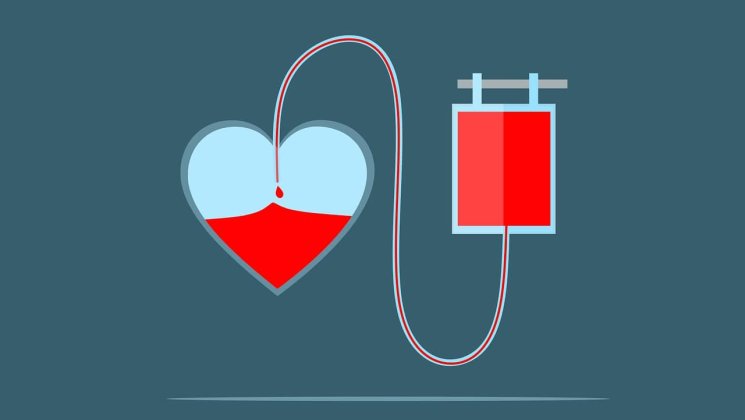Week of Asian Politics: 22 - 27 of April 2022

Skytte institute hosts an Asian week full of seminars, series of trainings, and workshops that are all linked to Asia, a region of diverse history, politics, and economy. All the aspects are analyzed through the eyes of political scientists.
22 April / Introducing the book "Perfect Imbalance: China and Russia" by Una Aleksandra Bērziņa-Čerenkova from Riga Stradins University
Opening session in Lossi 36-305 / 14:00 - 16:00
The introduction will be followed by a round table discussion with Una Aleksandra Bērziņa-Čerenkova (Riga Stradins University), Urmas Hõbepappel (University of Tartu), and Sandis Šrāders (Baltic Defence College)
Moderator: Louis Wierenga (Analyst in Political Science, University of Tartu)
Zoom (ID: 950 3711 5309, passcode: 808221) also available.
Contact: Louis Wierenga.
Una Aleksandra Bērziņa-Čerenkova is Head of the Asia program at the Latvian Institute of International Affairs and a member of the European Think tank Network on China. Dr. Bērziņa-Čerenkova has studied at Beijing Language University, Beijing Normal University, et al. After having defended her doctoral dissertation on traditional Chinese discourse in Hu Jintao’s report to the 17th National Congress of the Communist Party of China, she has held a Senior visiting research scholar position at Fudan University School of Philosophy, Shanghai, China (2014/15) and a Fulbright visiting scholar position at the Center for East Asia Studies, Stanford University, USA (2019/20).
Her recent book "Perfect Imbalance, China and Russia" is searching for answers to the most essential yet unsolved question of the 21st century - how close are Putin's Russia and Xi's China? The book investigates the Russia-China partnership from various perspectives, including the cooperation of foreign affairs institutes on security, Arctics, space, and international relations with other Eurasian states.
25 - 27 April / Doing business in Asia: Strategies and opportunities by Joseph Chee Phong Lau (Singapore)
Location TBC / 13:15 - 17:15 (and 2 - 5 May at 13:15 - 17:15)
PARTICIPATION 199 € + VAT
Register here
Contact: Kristel Birgit Potsepp
The training aims to provide participants with the knowledge and skills to do business in Asia. The training provides the necessary knowledge about the cultural and social characteristics required in business culture, introduces entry strategies to Asian countries, and provides an overview of the essential negotiation strategies, customer expectations, and customer retention.
Asia is the biggest economic region globally, and by the year 2040, it is estimated to top over 50% of the global GDP and drive 40% of the world’s consumption. Estonia's export volumes to Asia continue to grow, and integrating with Asian markets is inevitable to grow a successful business. Asia is also a leading innovator in today's most growing and relevant fields like e-commerce, entrepreneurship, and artificial intelligence.
The training is led by the visiting professor at Johan Skytte Institute of Political Studies and business consultant Joseph Chee Phong Lau (Singapore).
26 April / Discussion on Asia’s response to the Russian aggression in Ukraine
Lossi 36-214 / 18:15
Panelists: Robert Weatherley (University of Tartu), Agnieszka Nitza-Makowska (Collegium Civitas), Vinsensio Dugis (Airlangga University), and Radityo Dharmaputra (University of Tartu).
Moderator: Paula Kägu (University of Tartu Society of International Relations)
The event is organized by the University of Tartu Society of International Relations, the Asia Centre, and the Johan Skytte Institute of Political Studies.
Contact: Heidi Maiberg.
As the Russian military escalation against Ukraine rages on for almost the third month, the world is divided in its response. While the West is virtually united in condemning and giving sanctions to Russia and supporting Ukraine, the rest either profess neutrality or support Russia outrightly. Asia is divided, with China’s and India’s ambiguous responses and Southeast Asian countries’ neutral positions in contrast with Japan and South Korea. Indonesia, which holds the G20 Presidency this year, is also in hot water due to its insistence on inviting Russia amid the threat of a boycott from the West. The most illuminating example is the latest UNGA votes to suspend Russia from the UN Human Rights Council, where most Asian countries either abstained or voted against the resolution.
Find out why these tendencies to be neutral and ambiguous amidst war and the humanitarian crisis in Ukraine persist? Are there any patterns to these Asian responses? What can Europe learn from the Asian responses? Can the West do something to strengthen global solidarity with Ukraine?
27 April / Fostering sustainable connectivity in a fragile context: Pakistan's relations with China and the EU
Lossi 36-305 / 16:15
Lecture by Agnieszka Nitza-Makowska (Assistant Professor and Supervisor of Asian Studies, Collegium Civitas, Warsaw)
Moderator: Dr. Stefano Braghiroli (Associate Professor of European Studies, University of Tartu)
Contact: Risto Lehiste
With the critical challenges of financial and people-to-people connectivity coupled with weak economic and social sustainability, Pakistan lags behind most Asian countries. Can the European Union (EU) and China, through their long-term, multifaceted relations with Pakistan, help the country catch up with its peers? This presentation investigates the contemporary dynamics of the EU–Pakistan, and China–Pakistan relationships to identify their contribution to the realization of the 2030 Agenda for Sustainable Development and its 17 Sustainable Development Goals (SDGs) in Pakistan. The study is motivated by (i) Pakistan’s characteristics as a pivotal and fragile state. As Pakistan’s security situation has global implications, the fulfillment in the country of the SDGs, especially SDG 16 (peace, justice, and strong institutions), will have a positive impact on the region and beyond. Another reason to conduct the study is (ii) the poor global recognition of the EU–Pakistan relationship. While Pakistan maintains strategic relations with the US and China, its relationship with the EU lacks significant political dynamics. Finally, (iii) the development of China’s Belt and Road Initiative (BRI) also motivates the study. Its pilot project, the China-Pakistan Economic Corridor (CPEC), cannot be ignored when discussing Pakistan’s international connectivity.
Agnieszka Nitza-Makowska (PhD) is an assistant professor and supervisor of Asian Studies in Collegium Civitas, Warsaw, Poland. As a Socrates/Erasmus grant-holder, she studied international relations at Nottingham Trent University in Nottingham, the United Kingdom. Her PhD thesis entitled Political Conditions of Democracy in India and Pakistan – Comparative Analysis (in Polish), defended at the Polish Academy of Sciences, was based on fieldwork with Pakistani and Indian political elites. She made a monthly study visit to SciencesPo in Paris (A project co-funded by the European Social Fund).
In Collegium Civitas, she teaches Trade, Aid and Development, Political and Organizational Culture in Asia, The Rise of Asia - Focus on South Asia and its Relations with China (in English). In the 2018/19 academic year, she taught a seminar on political regimes in South Asia at the Humboldt University in Berlin.
Her current work focuses on soft power, development, sustainable connectivity, and environmental diplomacy. She published in the International Journal of Cultural Policy (Routledge) and the Journal of Peacebuilding and Development (SAGE). Agnieszka is Polish National Science Centre’s MINIATURA-4 and SONATA-16 grants holder. Her recent project investigates environmental diplomacy as a soft power instrument. Her Research Gate Profile and ORCID.
The week is coordinated by Evelyn Pihla.






